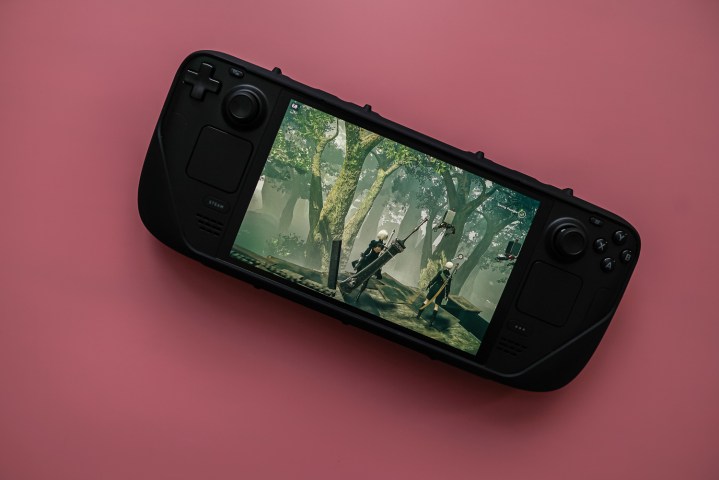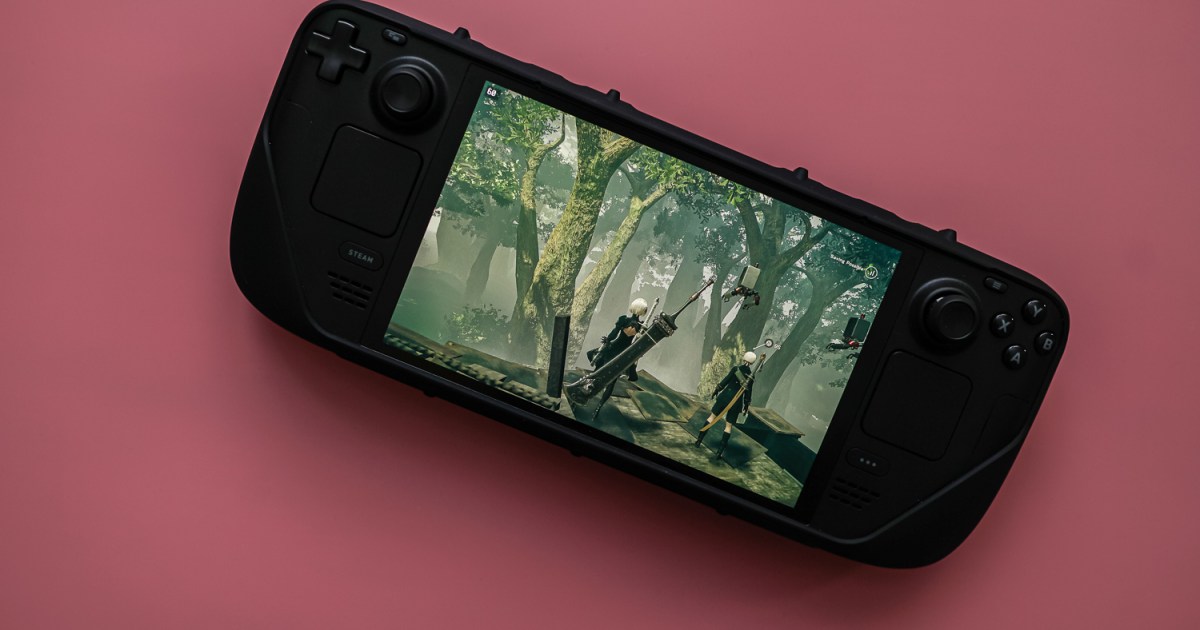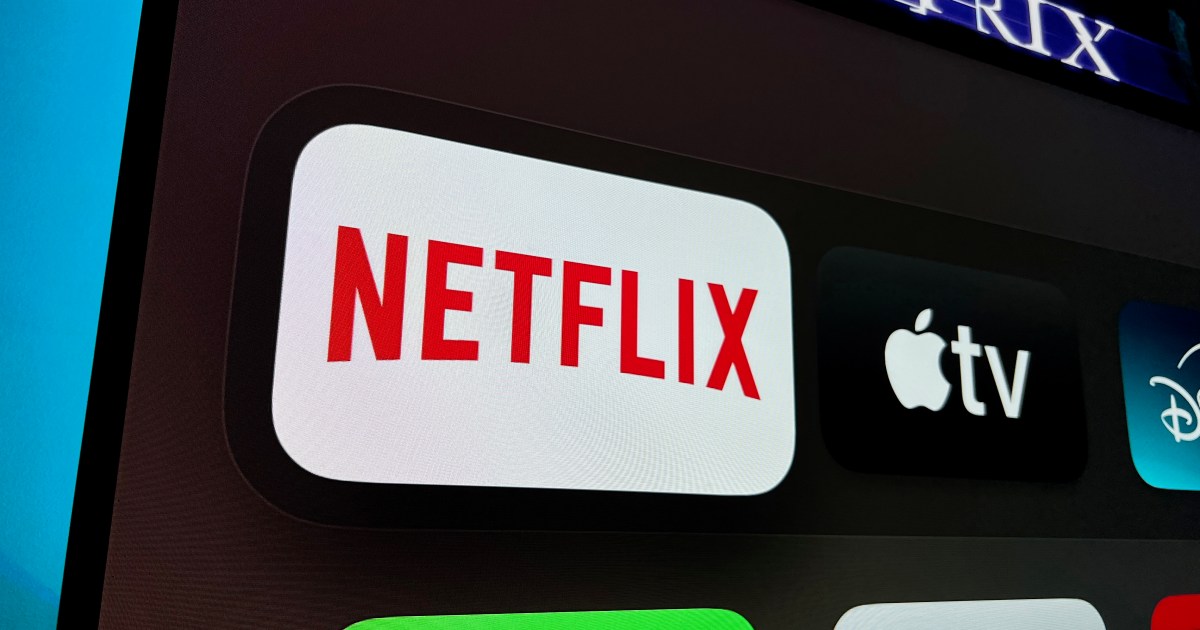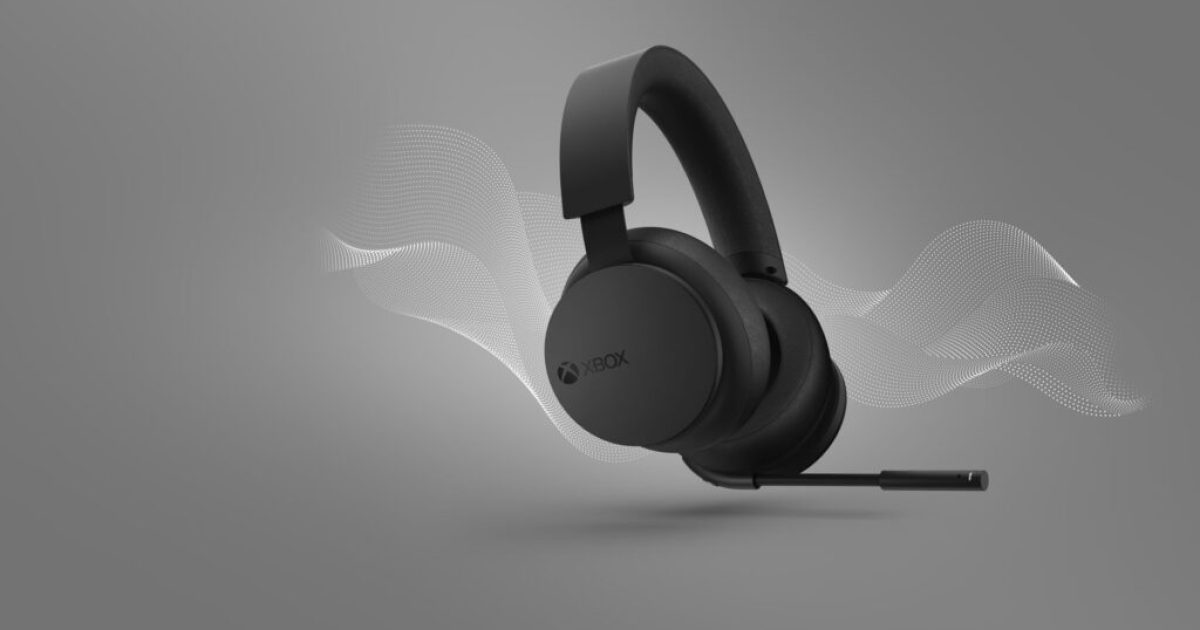Valve has confirmed it’s working on a successor to the Steam Deck, but don’t expect a Steam Deck 2 in the near future. The company is prioritizing significant performance leaps over incremental annual updates, aiming to provide a truly next-gen experience.
In a recent interview, Steam Deck designers Lawrence Yang and Yazan Aldehayyat discussed the future of the handheld console. They acknowledged the competitive landscape and the potential for iterative improvements, but emphasized their commitment to delivering substantial upgrades rather than minor annual revisions. Yang stated, “We’re not going to do a bump every year. There’s no reason to do that. And, honestly, from our perspective, that’s kind of not really fair to your customers to come out with something so soon that’s only incrementally better.” He highlighted the team’s focus on achieving a “generational leap in compute without sacrificing battery life” before launching a full-fledged Steam Deck 2.
 Steam Deck over a pink background.
Steam Deck over a pink background.
While a Steam Deck 2 isn’t imminent, Valve remains dedicated to improving the portable gaming experience. Aldehayyat acknowledged that the current Steam Deck addresses the desire for on-the-go PC gaming, but recognizes there’s still room for growth. He explained, “We really want to be able to let you play your Steam games anywhere you want. Steam Deck has improved that significantly, but we don’t view it as a solved problem yet. We still think that there’s a lot of room for improvement.”
This sentiment aligns with previous comments from other Steam Deck team members. In September 2023, designer Pierre-Loup Griffais reiterated the company’s desire for a generational leap in performance before releasing a second-generation handheld. He estimated a potential Steam Deck 2 launch in late 2025 or 2026, emphasizing the importance of a fixed performance target for developers and a consistent gaming experience across all Deck devices. Griffais stated, “It’s important to us that the Deck offers a fixed performance target for developers, and that the message to customers is simple, where every Deck can play the same games. As such, changing the performance level is not something we are taking lightly, and we only want to do so when there is a significant enough increase to be had.”
While a mid-generation refresh similar to the Steam Deck OLED is possible, Valve hasn’t indicated any such plans. The OLED model offered a screen upgrade and slightly improved battery life, but lacked significant performance enhancements.
In conclusion, while a Steam Deck 2 is eventually on the horizon, Valve is prioritizing meaningful advancements over frequent, incremental updates. They’re aiming for a genuine generational leap in performance and battery life before releasing a successor, ensuring a worthwhile upgrade for users. This patient approach suggests a commitment to delivering a truly next-gen portable gaming experience, even if it means waiting a little longer.











